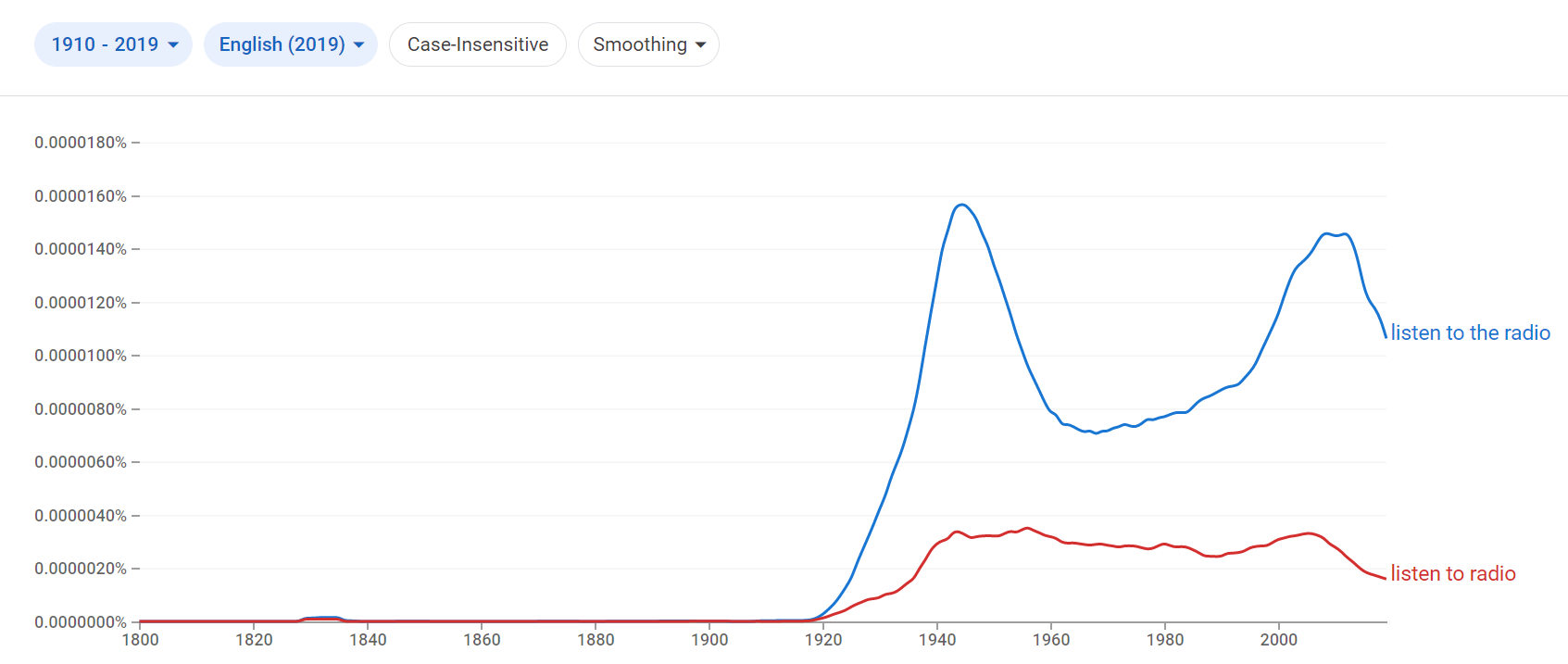We use the expressions “listen to the radio” and “on the radio” (with the article “the”) even if we are talking about this activity in a general way.
We use the expressions “listen to the radio” and “on the radio” (with the article “the”) even if we are talking about this activity in a general way.
Listening to the radio is one of the most common forms of entertainment.
My uncle heard the news on the radio.
1. Do You Always Need the Article Before 'Radio'?
We say “listen to the radio”, not “listen to radio”.
I enjoy listening to the radio in my car.
Similarly, we say that someone or something is on the radio (not “on radio”).
Did you hear the news on the radio?
Grammatically speaking, the expression “listen to radio” is not always incorrect, but it sounds unnatural in most situations.
My father likes listening to the radio.
Be aware, however, that we say watch TV and listen to music, but "listen to the radio".
Olivia enjoys being in her room where she can watch TV, listen to music, and listen to the radio.
The word radio can also serve as an adjective, in which case you should omit the article if the noun that follows does not require it.
Do you like to listen to radio programs on your mobile?

Source: Google Books Ngram Viewer
2. Using the Article in Other Situations
“Radio” can also refer to a piece of electronic equipment which you use for listening to radio programs, such as news and music.
She turned on the radio.
In this context, use an article (a/the) or another determiner (this, that, some, most, etc.) according to the standard rules.
Turning on a radio can cause distraction.
We also use the phrase “work in radio” (without “the”) to say that someone works at a radio station or in the radio industry.
Patricia worked in radio for nearly 25 years.

